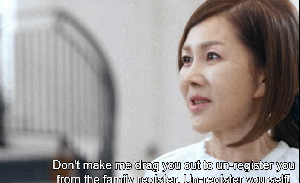The other night, I was asking my husband if he remembers “our song”. He said he remembers it, but he doesn’t know the lyrics, so I sang it to him. When I was singing the chorus, he remembered some lines and sang some parts, though most of the time he was humming. We were singing “our song” in the car, sometimes chuckling when one of us was out of tune.
The next morning, when he woke up, instead of saying “Good morning”, he sang our song while gently stroking my face: “With you right by my side, everything else will work out just fine. How did you know… I don’t know (the) next.” I was supposed to laugh, because he couldn’t get the rest of the lyrics right, but I didn’t… because right there and then, I felt what he was really trying to say. We have come a long way since we first met. In 10 years of long-distance relationship and five years of marriage, my husband and I have gone through a lot. Sure, all marriages go through fire and water, but ours had begun even before we decided to tie the knot!
GETTING PERMISSION TO MARRY (THE KOREAN WAY)
My family would say that our love story is more like an episode from a drama anthology. My husband’s father didn’t approve of our marriage at first. His view of marriage is quite traditional. He didn’t want his son to marry a foreigner. In Korea, it is imperative to ask for parental blessing before someone gets married. If the parents don’t approve of the person their child is planning to marry, it is more likely that the wedding will not take place. Although parental blessing before marriage is also very important in my country, Filipino parents don’t have much control over who their child chooses to spend the rest of his life with, especially when the one asking for the parents’ blessing is of marriageable age. My husband was 33 when he proposed to me. When I told my family that I was going to marry a Korean, they were reluctant. Koreans don’t have a good reputation in my country, and a lot of things had happened in the past between me and my husband that my family didn’t want me to go through again. Love, however, always finds a way. My husband was able to gain my family’s trust, and despite his father’s disapproval, he came back for me. Perhaps it was his determination that changed his father’s mind in the end.
Finally, in February 2010, my husband and I said our “I do’s”. His parents and my family were all there to witness our exchange of vows. When his father gave a speech, he said that we are proof of how truly powerful love is that despite our differences and being far apart for years, we found a way to be together and finally get married.

(Source: listverse.com)
DEALING WITH PREJUDICE
My husband had always been honest about what my life might be like as a foreign wife in Korea. We both knew that we would have to deal with cultural conflicts and prejudice at some point. Asian women outside of Korea who marry Korean men are stereotyped as mail-order brides or women who were introduced to their husbands by marriage brokers. This misconception stems from a common practice of Korean men who can’t have Korean wives. These men sometimes seek the services of matchmakers who find wives for them in neighboring countries. Matchmakers usually select younger women who come from impoverished families, so that they can be easily swayed to marry a man they barely know in exchange for the promise of a better life in Korea. What some Koreans fail to recognize is that there are MANY foreign wives in Korea who weren’t picked by marriage brokers, women who are no different than any other wives who married their husbands because of love and the desire to have their own family, women who had no hidden agenda when they decided to leave their home countries to be in Korea with their husbands. Before I left my country to live in Korea, one of my husband’s relatives who was staying in the Philippines told me, “You are very lucky you will go (to) Korea. Many Filipina(s) want (to) go (to) Korea, but (they) cannot.” Some Koreans think that when a Filipina marries a Korean, she is after financial gain. NOT ALL Filipinas marry for money. NOT ALL Filipinas are dying to step foot on Korean soil. NOT ALL Filipinas are after the visa.
As for those who marry for convenience, is this still an issue these days? Marriages of convenience have been done for centuries, not only by Filipinos, but by people of different ethnicities. Even monarchs marry to save their crown. People can be such hypocrites, judging others because of their choices in life. I have much respect for women who marry for convenience, and yet turn out to have a more successful life and unselfishly dedicate their time to becoming good wives and responsible mothers. These women DO exist, but are overshadowed by the wrong perception of bigoted people.

Mean mother-in-law as portrayed in Korean drama (Source: seoulsync.com)
LIVING WITH THE IN-LAWS
My husband and I have lived with his parents for almost five years now, and mind you, this hasn’t been easy for me. My parents-in-law are NOT horrible people. They are probably kinder than the type of in-laws pictured in the minds of a typical myeonuri (daughter-in-law)… but who wants to live with the in-laws? I bet no myeonuri will wholeheartedly say, “Me!” Let me tell you why. Korean society places a high value on family and seniority, most of the time, disregarding individual needs. A daughter-in-law in Korea is expected to be loyal and obedient to her husband’s family at all times. She should learn to put her own concerns aside to fulfill her myeonuri duties. The burden of fulfilling these duties become more onerous when she has to live with the in-laws as she is often under scrutiny. A myeonuri is usually powerless against her parents-in-law, because Korean tradition dictates that elders always be treated with the utmost respect… even when they are being unreasonable and demanding. In my husband’s household, my father-in-law is the most powerful member of the family. He makes most of the decisions and has to be consulted about almost everything, from my husband’s business plans to the color of curtains to use in the house!
Before coming to Korea, I used to make my own decisions. My family was always there to give advice, but they never dictated my choices in life. I was a confident and independent woman, but I had to change to fit my parents-in-law’s standards. There are times when I don’t have power over the simplest choices I ought to make on my own because I live with the in-laws. I can’t wear what I want or dye my hair, because they will surely disapprove of my fashion choices. Two years ago, after a trip from the Philippines, I came back to Korea with hair highlights which my father-in-law didn’t like, so I had to get my hair back to its natural color. The first time I wanted to study Korean Language in Seoul, my father-in-law objected. I knew he was worried for my safety, but for Pete’s sake, I am an adult who can remember directions and which transport to take. I get upset whenever I have to do something against my will, but I just try to do what I can to avoid conflicts with the in-laws. I realized, after crying a river countless times, that there is really nothing I can do. A little bit of patience won’t kill me. After all, I’ve seen and heard worse from other foreigners married to Koreans. Also, I try not to bombard my husband with complaints about his parents, because we end up arguing. The best solution is to NOT get under the in-laws’ skin by NOT doing the things that they don’t like. My parents-in-law may be strict and closed-minded, but they are not that bad. My mother-in-law is kind to me. She never nags. My father-in-law, despite his authoritarian ways, is thoughtful and generous. Whenever I feel like they are being unfair, I think about their goodness, so I don’t develop a negative feeling towards them. It was my mom who taught me this strategy. She told me that defiance will lead to more misunderstandings, so as long as I am under my parents-in-law’s roof, I should learn how to live by their rules. Ugh, I hate rules, but what can I do but to keep an open mind and wait for the day my husband and I move to a home of our own?
My number one advice for those who are going to marry a Korean, DON’T LIVE WITH THE IN-LAWS, period. ^^
COMMUNICATION
My husband and I have always communicated better in English. Sometimes I use Korean when I talk to him, and he uses Filipino, but we end up laughing at each other’s pronunciation and grammatical mistakes, so using our native languages to communicate is exclusively for “kidding around”. ^^
When we have serious things to discuss, I make sure I have my English-Korean dictionary ready, so if he has a hard time grasping unfamiliar terms, I could easily type in the word for him. (Yes, just like having a one-on-one ESL class. ^^) He also does the same for me when he is having a hard time expressing himself in English. My husband’s English is all right, but language will always be a bit of a problem when a couple doesn’t speak the same tongue. No wonder Korea now requires foreign spouses to take a Korean Language exam before they are given a visa. I often misunderstood my husband everytime he used his normal Korean voice with me. I would think he was waging war against me. Later on, he explained that it is common for Koreans to talk with a loud voice. He has learned to speak more softly except when he is over-excited to tell me something.
More than language barrier, it is actually how a couple communicates with each other about their different cultural backgrounds that makes a multicultural marriage even more challenging. My husband and I used to lock horns with each other everytime we talked about “how things are done in my country” and “how they should be done in Korea”, but as years went by, we have learned how to accept our differences. I used to give him the long talk, but he hated that, and referred to it as “nagging” even when I wasn’t talking angrily, so now whenever we need to talk about our differences, I go straight to the point and just tell him how I feel. I don’t compare or use my culture as an excuse. I try not to be defensive. I tell him to listen and after I speak my mind, he can talk and I’ll be all ears.
It also helps to make a compromise. We have agreed that since we live in Korea, we should follow (mostly) the Korean way, but when we are in the Philippines, we do things my way. A woman’s submission to male authority is very important in Korean society, but I am grateful to have a husband who respects my independence and is willing to comply to make our relationship work.

A scene from Psy’s “Hangover” Featuring Snoop Dogg (Source: acclaimmag.com)
KOREA’S DRINKING CULTURE
In Korea, it is almost impossible to stay away from consuming alcohol because of the country’s drinking culture. It is customary for companies to hold get-togethers which turn into drinking sessions where everyone gets drunk. I didn’t like it every time my husband came home late after a company dinner, especially when he had too much to drink.
At first I thought that he was just using his country’s drinking culture as an excuse for his coming home late, liquored up. In my country, this is unacceptable. It was only after he took me with him to one of their company dinners that I witnessed how unavoidable the whole Korean drinking frenzy is. I was a guest at that dinner, but I was also forced to drink. Thankfully, I managed to elude it. Soju glasses were filled to the brim and constantly passed from one person to another. Everyone was required to drink a full glass of soju, refill it and give it to the person next to him. This cycle was done multiple times, and no one could refuse the drink except me, being a guest and a foreigner who was obviously uncomfortable with what was going on. Some employees tried to refuse, but they were badgered into drinking like there was no tomorrow. It was nearly 3 in the morning, and I wanted to go home, but my husband told me that leaving the group first would be rude, so we stayed until they were all too wasted to have more shots of soju.
It has been 4 months since my husband quit drinking cold turkey. I couldn’t be happier. I’m keeping my fingers crossed that he won’t be tempted to drink when he has to attend a company dinner. His friends know about his surgery, so they don’t offer him alcohol when he goes out with them, but bosses, argh… some Korean bosses can be booze bullies!
MONEY MATTERS
My husband and I rarely argue about money, but before we tied the knot, we had already talked about how to manage our finances. We used to combine our finances, but this was stressful for both of us, because we have different approach to money. To solve money issues, we developed a new system: he is in charge of the bills, and I am the one who takes care of our savings. Saving money is of great importance to Koreans. This is one useful thing that I have learned from my father-in-law. We used to give money to the in-laws which helped pay for the apartment that we all live in, but later, my father-in-law encouraged us to save the money instead. It is not uncommon for a married couple in Korea to give some of their earnings to the husband’s parents. Parents usually save the money for the couple’s future; however, it is best for the couple to save money on their own, as the practice of handing money to the parents causes conflict and distrust in most cases. Some foreign wives complain about giving some or most of their salaries to their parents-in-law. If you come to think about it, they have every right to complain, but in Korean culture, like I said earlier, the husband’s family is often involved in everything the couple has to decide on. That includes money. A friend who is also married to a Korean told me that her husband’s older brother is the one managing her husband’s inheritance from his father, and the husband doesn’t seem to mind.
From the time I decided to marry a Korean, my life has changed in many ways I didn’t think possible. I have become stronger and more open-minded. I have learned how to be humble and more accepting of others, especially in dealing with my parents-in-law. If you ask my husband, I bet he will tell you that he has changed a lot, too. Some changes are pleasant; some are not, but one thing is for sure, there is now more singing in the car than there had been during the first few years of our marriage, because this time, we have come to fully accept the reality of being a multicultural couple and understand each other and our culture more. We have learned that there is no easy way to resolve our differences, but as long as we are both willing to work together, just like any other marriages that go through fire and water, we will overcome any difficulty.





